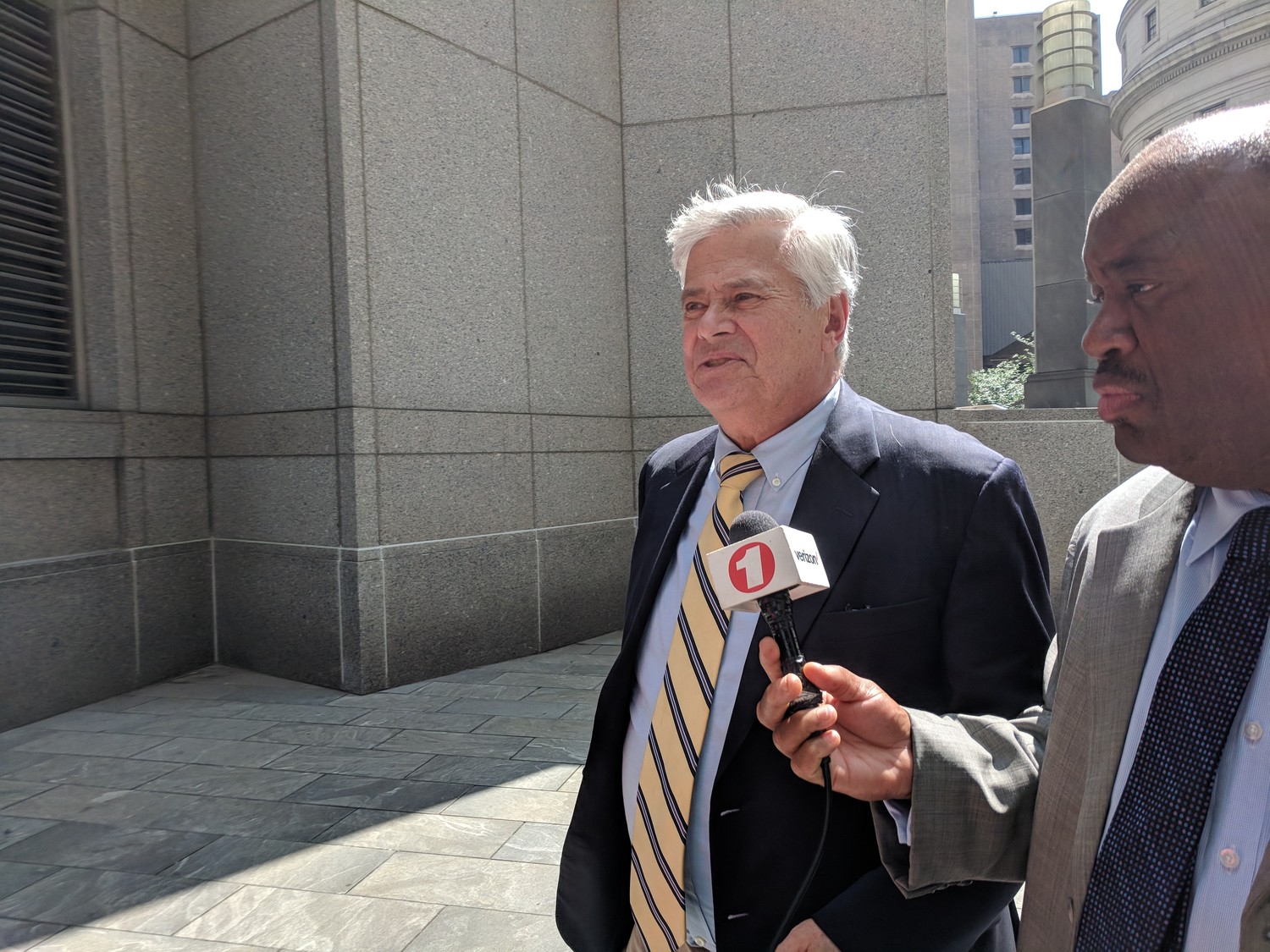Jury deliberating after retrial of Dean and Adam Skelos
Former State Senate majority leader and son wait for verdict regarding 2015 corruption, extortion and conspiracy charges

“I did not corrupt my office, and I never intended to,” defense attorney Robert Gage Jr. said, reemphasizing Dean Skelos’s testimony during closing arguments of the former Rockville Centre politico’s retrial last week.
Skelos, former majority leader of the State Senate, and his son, Adam, were convicted on corruption, extortion and conspiracy charges in 2015 after Dean allegedly used his political power to secure work for Adam. The two returned to federal court in Manhattan on June 19 after their convictions were overturned last year.
The retrial wrapped up July 13, and the jury was still deliberating at press time Monday. Check liherald.com for updates.
Former U.S. attorney Preet Bharara prosecuted the original case, charging that Skelos used his influence to secure a storm-water mitigation contract between Nassau County and Arizona-based company AbTech, for which his son worked. He allegedly netted more than $200,000 in payments for his son under AbTech, as well as $100,000 in health benefits and a $78,000 salary from Roslyn-based Physicians’ Reciprocal Insurers, a medical malpractice insurer for which Adam did no or little work.
Dean and Adam were sentenced to five and 6 ½ years in prison, respectively. They have been out on bail since last August, when a court order by U.S. District Judge Kimba Wood released them because there was “a substantial question whether jurors received the correct instructions to make an accurate ruling.”
Last September, an appeals panel cited a 2016 Supreme Court decision involving former Virginia Gov. Robert McDonnell, which narrowed the definition of an “official act” in corruption cases. The decision forced the prosecution in the retrial to demonstrate that Skelos, once considered among New York's most powerful elected leaders, exercised formal powers in seeking favors for his son.
Part of the retrial focused on a $20,000 check that Adam accepted from Charles Dorego, a top executive at Glenwood Management, a real estate development company that Adam allegedly did no work for. The payment was from a title insurance company. Other prosecution witnesses included Anthony Bonomo, chief executive officer of PRI, and Bjornulf White, Adam’s boss at AbTech.
During closing statements last week, Adam’s attorney, John Kenney, argued that the prosecution’s claims revolved around Adam getting a job, which the defense contended was “not corruption.” Kenney said that while Adam was “not the ideal employee,” he showed up and tried his best, despite not necessarily deserving the “cushy” paycheck. At one point, Adam’s attorney described him as “troubled,” and labeled him a “28-year-old child,” to which Adam shook his head.
Kenney recognized that Adam was unqualified for the jobs. He added that Adam got the jobs “because his name is Skelos,” but noted that there is “nothing wrong with that access.”
Gage argued that Dean had no power over the companies involved in the case, and that he did not back any legislation to benefit his son’s employers.
He also called out the federal government’s argument as “desperate” and sarcastically labeled the prosecutors as “talented.” As for the charges, Gage said that Skelos admitted to helping his son, but that there was no criminal exchange, or “corrupt trade.” Dean was expressionless throughout both arguments.
Adam told a reporter outside the courthouse on July 11 that he thought the retrial was “going all right.” His father said he thought the case “speaks the truth,” and said he was eager for the trial to end so he could return to his family.
On July 12, the prosecutor, Thomas McKay, told the jury that the case was not about Dean, the “affable” family man, but rather Dean, the former Senate majority leader. “This is the Dean that really matters,” he noted.
McKay also emphasized Dean’s power to the jury, noting that he decided which bills came to a vote, and McKay said Dean had the ability to block legislation if desired. Additionally, he said the three men helping his son did business in New York.
Bruce Barket, a criminal defense attorney from Barket Epstein & Kearon in Garden City and New York City, commented on the case for the Herald. According to Barket, Dean’s testimony was “accurate. …He was not looking to sell his office, or be corrupt in a general sense … and he was doing what any father would do to help his son.”
Barket noted, however, that unlike many other fathers, Dean was limited under the law as a public official. “If the senator did nothing wrong, neither did the son,” Barket added, describing the case as tragic. “The question for the jury would be whether or not [Dean] stepped over the line.”

 49.0°,
Fair
49.0°,
Fair 



